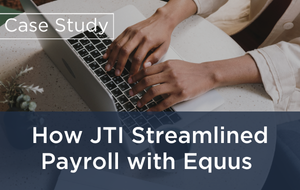Key takeaways:
- As more U.S. companies relocate headquarters, attracting employees to move has become a priority.
- Due to the 2018 Tax Cuts and Jobs Act, employer-covered moving expenses are now taxable.
- Solution: Employers use “tax gross-ups” to offset these taxes, ensuring employees receive the full relocation benefit.
- Gross-Up Methods: Options include fixed, ordinary/statutory (based on marginal tax rate), and supplemental rates.
- Solution – The Equus Platform: SIRVA uses the Equus Platform’s flexible platform to accommodate different gross-up methods and align with clients’ needs.
- Cost Management: Equus’s tools provide budgeting and cost estimation, helping companies plan and manage relocation expenses proactively.
- Result: The Equus Tax Engine enables a streamlined relocation process, enhancing employee satisfaction and operational efficiency.
Navigating Employee Relocation: How Tax Gross-Ups Make Moves More Attractive
Over the past five years, U.S. trends have reflected a rise in corporations shifting HQs across states, driving significant employee relocations. One of the main goals for employers managing these moves is to make relocation as appealing as possible to retain top talent.
One-way companies incentivize relocation is by covering moving expenses through relocation benefits. However, the 2018 Tax Cuts and Job Act (TCJA) made employer-paid moving expenses taxable. To offset this tax impact, companies often provide “tax gross-ups” so employees can receive a full, tax-neutral benefit.
For example, if an employer offers a $5,000 moving allowance, they may “gross-up” to cover the taxes, ensuring the employee receives the intended amount after the tax deductions.
Choosing the Right Tax Gross-Up Rate
The choice of tax rate for gross-ups depends on the method a company selects for calculating tax reimbursement. Common options include fixed, ordinary (statutory), and supplemental rates.
- Fixed rate: A flat rate on all income, as defined by the user.
- Ordinary (Statutory) Rate: This rate follows marginal tax brackets, as seen on tax returns, where portions of income are taxed at different rates.
- Supplemental Rate: A flat 22% for income under one million dollars.
Ordinary vs. Supplemental Rates
Understanding the difference between ordinary and supplemental tax rates is crucial for both employers and employees when managing relocation benefits. The ordinary rate aligns with the employee’s actual tax liability based on their marginal rate, providing a precise match. The supplemental rate, while simpler and often easier for payroll processing, may not match the employee’s tax liability per tax return due to the flat 22% rate.
For example, an employee earning $250,000 annually would have a 32% marginal rate applied under the ordinary method, matching their true tax liability on the relocation allowance. Using the 22% supplemental rate, however, would yield a lower net amount.
Companies must weigh the trade-offs between accuracy and simplicity when selecting a gross-up method.
How SIRVA Leverages Gross-Ups with Equus
Kristy Marconett, VP of Client Tax Services at SIRVA, spoke at our 2024 Americas Client conference and shared insights on her company’s client approach to gross-ups, stating that
“the spread of clients using supplemental to ordinary rates is an even 50/50 split.”
With the Equus Platform SIRVA can calculate gross-ups via several methods, offering the flexibility that makes SIRVA’s clients happy. This adaptability extends to other areas as well. Kristy highlighted the benefits of forecasting with domestic cost estimates, enabling her team to support clients with U.S. domestic relocations effectively.
For companies, having a domestic cost estimate upfront provides insights into major expenses and costs trends, which supports financial accruals. Implementing a structured cost management process enables better financial control.
The Equus Platform has the flexibility to use the rates our clients need, whether for cost estimates or expense management. Interested in learning more? Contact us.
Why Choose the Equus Tax Engine?
Interested in taking control of tax costs for U.S. domestic moves? The Equus Tax Engine simplifies relocation processes, allowing companies to proactively anticipate, manage, and quickly approve expenses.
Take Next Steps with Equus Software
Are you interested in taking control of your global tax management processes? The Equus Tax Engine supports a wide range of tax policies for efficient, accurate processing.
- See the Tax Engine in Action – Request a Demo!
- Have Questions? – We’re here to help! Contact Us
- Learn more – check out some of our blogs:













